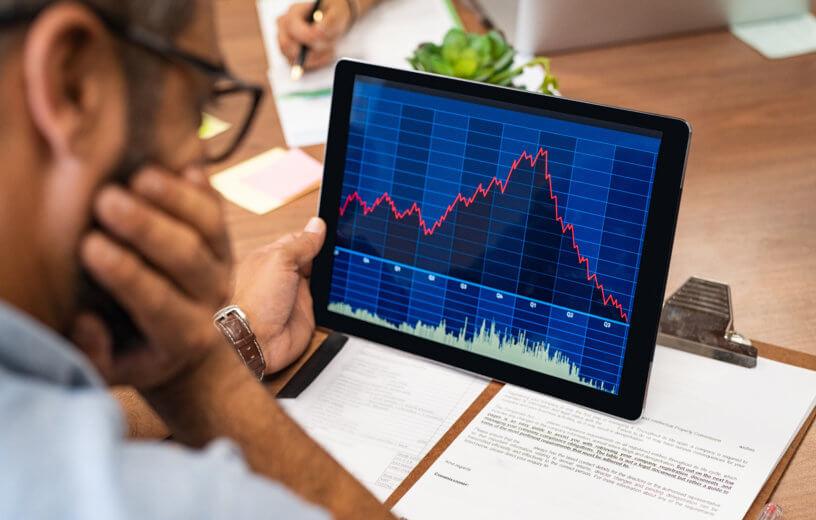PORTSMOUTH, United Kingdom — Summer is on the way and while sunny days are great for plenty of things, a new study explains why it could mean trouble for your financial investments. Researchers from the University of Portsmouth have found that good weather and lots of sunshine can actually lead to investors making sloppy decisions with your money!
In the new report, study authors found that sunshine levels have a “significant impact” on the behavior of stock bidding. Along with this connection, the team also examined how this affects seasoned equity offerings (SEOs), which is a discount for shares that act as a tool companies use to raise finance.
Using weather station data, results show investors made higher bids on sunnier days, leading to lower discounts for shares in the primary market. Specifically, a one standard deviation increase in daily sunshine intensity led to bid discounts declining by 2.4 percent. Meanwhile, a one standard deviation increase in sunshine duration (meaning the Sun was out longer) led to bid counts falling by 3.33 percent. So, the obvious question is — why?
“With sunny weather, often come good spirits – which in many circumstances is a positive, but that’s not the case with financial decision-making. When the sunshine intensifies, bidders become overly optimistic and less risk-averse, which can lead to higher bid prices for seasoned equities,” says Professor Jia Liu, CISF Centre Director and Professor of Accounting and Finance at the University of Portsmouth, in a media release.
Sunny days really do affect our emotions
Studies continue to show that the weather — and sunshine in particular — has a clear impact our emotional state. Study authors note that the weather can influence everything from the car someone chooses to buy to their tendency to task risks by playing the lottery.
When it comes to the weather’s connection to Wall Street, researcher Edward Saunders first established the theory 20 years ago.
“Saunders inspired our study,” Prof. Liu explains. “His results strongly supported the hypothesis that investor psychology influences asset prices. And despite strong evidence that this has a large economic impact, there has since been little research into the relationship between the weather and stock market performance in the primary stock market. Saunders’ study only examined stock prices in the secondary market though, so we decided to go a step further and looked at the investor’s individual behavior in the primary market.”
“The China Securities Regulatory Commission (CSRC) requires that SEO issuers disclose detailed investor bidding information during the SEO auction process, providing us with a unique opportunity to examine the effect of sunshine-induced mood on investors’ decisions in the primary market,” adds Professor Shenghao Gao from the Southwestern University of Finance and Economics in China.

‘Stability of markets’ could depend on our understanding of the weather
During this study, researchers examined 1,625 auction-style SEOs, representing 28,321 bids from 2,978 investors between 2006 and 2019. Results also show that when a company’s SEO offering is more complex, or investors are less familiar with the company’s corporate background, the influence of sunshine has an even greater impact on the stock market.
Study authors say their results show a need for investors to be particularly careful on days when the weather is good. With recent fears of a recession still on the horizon and high inflation continuing to be a problem, the summer months could bring storm clouds to many retirement accounts and investment portfolios.
“We want to make investors aware that during periods of sunny weather, they become more optimistic about their investments. This will make them more inclined to take risks that aren’t justified by asset values. Therefore, they should factor this consideration in when bidding for shares or they might suffer losses,” Prof. Liu says.
“The study has profound implications for policy and practice. The growing instability of weather systems throughout the world, and the established connections between climatic conditions and investors’ behaviors, makes this an issue of increasing relevance in a financially interdependent world.”
“Maintaining the stability of markets could depend upon our understanding of this phenomenon, since the onset of climate change might have an increasingly destabilizing impact on the judgment of investors and market-makers, with unpredictable consequences for global trading.”
The findings are published in the Journal of Corporate Finance.
You might also be interested in:
- Best Apps For Stock Trading: Top 5 Investment Services, According To Experts
- Best Investments For 2023: Top 5 Ways To Build Savings Most Recommended By Experts
- Best Investing Books, According To The Pros: Top 6 Must-Have Guides For Making Money

